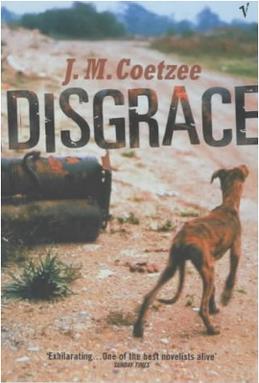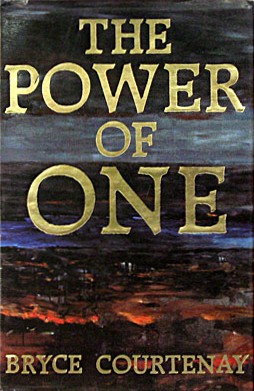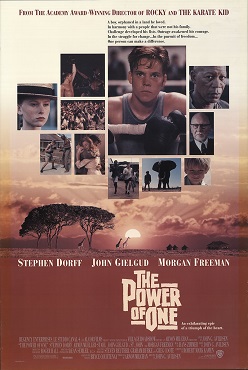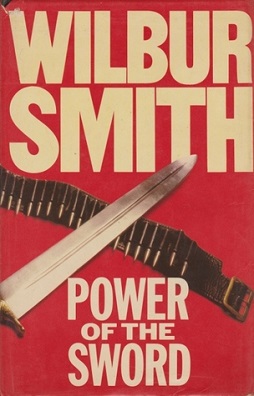Plot summary
Tandia, whose parents were a South African Indian man (Mr. Patel) and his house worker (a black woman), is raped by a police officer at her father's grave the day after his funeral. With Mr. Patel's death, Tandia knew things were going to be very hard for her. But after his wife (Mrs. Patel) kicks her out of the dark corrugated-iron shed in the back yard, her only house, her situation has been changed more drastically than she expected. She is arrested by the police and meets the policeman who witnessed the rape on her father's grave and becomes her lifelong enemy, Jannie Geldenhuis.
Tandia finds a home in the brothel where Geldenhuis drops her. The brothel's owner and the other residents adopt her and she learns a lot of life lessons. Some of the clients of the brothel end up becoming her sponsors for her ambition to enter law school.
While Peekay and Hymie (Morrie in the American version) go to Britain to read law at Oxford University, they want to conquer the world boxing field, Peekay as world welterweight champion and Hymie as Peekay's manager. They also want to pursue justice for the country they love, South Africa. When they arrive back in South Africa, their rivalry with Jannie Geldenhuis, which began in the school where they first met, extends to both boxing and politics.
Tandia grows up to be an intelligent and very beautiful lawyer. She joins the law firm formed by Peekay and Hymie and is dedicated to providing counsel to the under-represented black and coloured population of South Africa. Her defense of a black terrorist causes her to again confront her lifelong enemy Jannie Geldenhuis who is now a powerful officer in the police force.
Tandia and Peekay develop a romantic relationship, in a country where mixed relationships are outlawed. Their growing love is very dangerous and it leads them into the most fearful consequences.

Sexual slavery and sexual exploitation is an attachment of any ownership right over one or more people with the intent of coercing or otherwise forcing them to engage in sexual activities. This includes forced labor that results in sexual activity, forced marriage and sex trafficking, such as the sexual trafficking of children.

Disgrace is a novel by J. M. Coetzee, published in 1999. It won the Booker Prize. The writer was also awarded the Nobel Prize in Literature four years after its publication.

Arthur Bryce Courtenay, was a South African-Australian advertising director and novelist. He is one of Australia's best-selling authors, notable for his book The Power of One.

The Power of One is a novel by South African born, Australian author Bryce Courtenay, first published in 1989. Set in South Africa during the 1930s and 1940s, it tells the story of an English boy, who through the course of the story, acquires the name of Peekay. In the film version, the protagonist's given name is Peter Phillip Kenneth Keith. The author identifies "Peekay" as a reference to his earlier nickname "Piskop": Afrikaans for "Pisshead.")

The Levee District was the red-light district of Chicago from the 1880s until 1912, when police raids shut it down. The district, like many frontier town red-light districts, got its name from its proximity to wharves in the city. The Levee district encompassed four blocks in Chicago's South Loop area, initially between Harrison and Polk, between Clark and Dearborn, and then the newer Levee district, between 18th and 22nd streets. It was home to many brothels, saloons, dance halls, and the famed Everleigh Club. Prostitution boomed in the Levee District, and it was not until the Chicago Vice Commission submitted a report on the city's vice districts that it was shut down.

Top 10: The Forty-Niners is a graphic novel published by America's Best Comics in 2005. It is a prequel to the ABC series Top 10, a police procedural set in the city of Neopolis, where superpowers, robots, monsters, and other comic fodder are the norm for all citizens. It was written by Alan Moore, drawn by Gene Ha, and colored by Art Lyon, with lettering, logos, and design by Todd Klein. Unlike the original series and its spin-off Smax, it was released in one 112 page edition instead of being released in separate issues and collected later. It won the 2006 Eisner Award in the "Best Graphic Album: New" category.

Four Fires is a novel written by Bryce Courtenay. It was first published in 2001.

The Potato Factory is a 1995 fictionalised historical novel by Bryce Courtenay, which was made into a four-part miniseries in Australia in 2000. The book is the first in a three-part series, followed by Tommo & Hawk and Solomon's Song. The Potato Factory has been the subject of some controversy regarding its historical accuracy and its portrayal of Jewish characters.

Gayl Carolyn Jones is an American writer from Lexington, Kentucky. She is recognized as a key figure in 20th-century African-American literature.

There is a wide range of ways in which people have represented apartheid in popular culture. During (1948–1994) and following the apartheid era in South Africa, apartheid has been referenced in many books, films, and other forms of art and literature.

Petals of Blood is a novel written by Ngũgĩ wa Thiong'o and first published in 1977. Set in Kenya just after independence, the story follows four characters – Munira, Abdulla, Wanja, and Karega – whose lives are intertwined due to the Mau Mau rebellion. In order to escape city life, each retreats to the small, pastoral village of Ilmorog. As the novel progresses, the characters deal with the repercussions of the Mau Mau rebellion as well as with a new, rapidly westernizing Kenya.

The Power of One is a 1992 drama film directed and edited by John G. Avildsen, loosely based on Bryce Courtenay's 1989 novel of the same title. The film stars Stephen Dorff, John Gielgud, Morgan Freeman, Armin Mueller-Stahl, and Daniel Craig in his feature film debut.
Esther Barsel was a South African political activist and long-standing member of the South African Communist Party (SACP). She was a member of both her local African National Congress branch and the SACP's Johannesburg Central Branch.

The rate of sexual violence in South Africa is among the highest recorded in the world. Police statistics of reported rapes as a per capita figure has been dropping in recent years, although the reasons for the drop has not been analysed and it is not known how many rapes go unreported. More women are attacked than men, and children have also been targeted, partly owing to a myth that having sex with a virgin will cure a man of HIV/AIDS. Rape victims are at high risk of contracting HIV/AIDS owing to the high prevalence of the disease in South Africa. "Corrective rape" is also perpetrated against LGBT men and women.

Cotton Comes to Harlem is a hardboiled crime fiction novel written by Chester Himes in 1965. It is the sixth and best known of the Harlem Detective series. It was later adapted into a film of the same name in 1970 starring Godfrey Cambridge, Raymond St. Jacques, and Redd Foxx.
A racial hoax occurs when a person falsely claims that a crime was committed by member of a specific race. The crime may be fictitious, or may be an actual crime.
Hymie Barsel was a South African activist.

Recy Taylor was an African-American woman from Abbeville in Henry County, Alabama. She was born and raised in a sharecropping family in the Jim Crow era Southern United States. In the 1940s, Taylor's refusal to remain silent about her rape by white men led to organizing in the African-American community for justice and civil rights.

Power of the Sword (1986) is a novel by Wilbur Smith set before and during World War II.

Darktown, published in 2016, is the fourth novel by American author Thomas Mullen. Its sequel, Lightning Men, was published in September 2017.

















